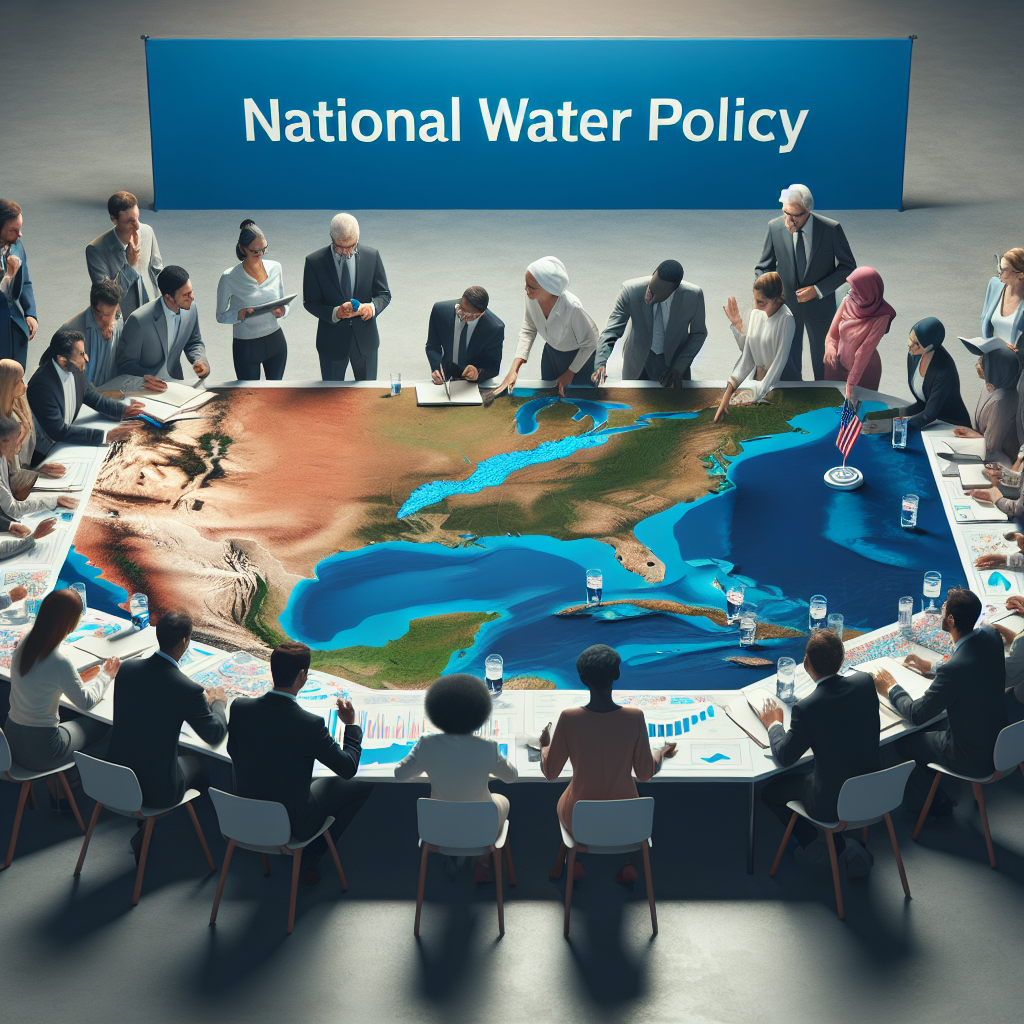Committee Backs Governance Probe into uMngeni Water Amid R22bn Expansion Plan
The committee urged that the process be swift and transparent, noting that the integrity and credibility of the utility are crucial at a time when it is seeking external funding for major infrastructure projects.

- Country:
- South Africa
The Portfolio Committee on Water and Sanitation has welcomed the announcement by the Minister of Water and Sanitation to launch a formal investigation into governance concerns at uMngeni Water Services, following a series of troubling reports that have surfaced over the past month. The committee urged that the process be swift and transparent, noting that the integrity and credibility of the utility are crucial at a time when it is seeking external funding for major infrastructure projects.
Governance Concerns Under Scrutiny
The acting Chairperson of the Committee, Mr. Sello Dithebe, said that recent developments — including the removal of the uMngeni Water Services Board Chairperson, questions around board fee structures, and reports of an employee’s sponsorship to the New York Marathon — warranted a thorough and independent review.
“These reports raise serious concerns about governance mechanisms within the entity,” Dithebe said. “Water plays a vital role in driving socio-economic development, and the governance of water entities must be beyond reproach.”
The committee also commended the uMngeni Water Board for its willingness to make its policy framework publicly available for scrutiny and review, particularly regarding its sponsorship and employee benefit policies. The transparency initiative, it said, would help restore public confidence in the institution’s ethical governance.
Safeguarding the Utility’s Financial Credibility
While the committee refrained from pre-empting the outcome of the investigation, it underscored the importance of protecting the utility’s current positive credit rating, which is instrumental in enabling it to attract investment for large-scale water infrastructure development.
The committee stressed that any governance lapses could have national implications for investor confidence and the stability of South Africa’s water sector. It therefore called for decisive leadership and strong accountability mechanisms to preserve the entity’s reputation.
R22 Billion Infrastructure Plan Welcomed
The committee lauded the announcement of a R22 billion capital expenditure (capex) budget, viewing it as a strategic investment in water security and economic growth. The funds will be used to expand bulk water infrastructure, upgrade treatment facilities, and support regional water schemes across KwaZulu-Natal and surrounding areas.
“The successful implementation of this plan is essential,” Dithebe stated. “To realise its full benefits, the utility must ensure it has the required skills, technical expertise, and capacity to execute the capex plan effectively.”
The investment aligns with government’s broader drive to stimulate infrastructure-led recovery, positioning water as a critical enabler of industrial development, agriculture, and service delivery.
Addressing Non-Revenue Water Challenges
Despite progress in infrastructure planning, the committee voiced continued concern over non-revenue water (NRW) — water that is lost through leaks, theft, or unbilled consumption. Municipalities across the country lose up to 40% of treated water, resulting in major financial and supply challenges.
“Municipalities must pull up their socks and urgently address non-revenue water losses,” Dithebe warned. “Unless these losses are curtailed, the billions invested in bulk infrastructure will fail to yield the desired results.”
The committee recommended closer collaboration between municipalities, water boards, and the Department of Water and Sanitation to implement robust water-loss reduction strategies and real-time monitoring systems.
Promoting Energy Resilience and Sustainability
In light of South Africa’s ongoing energy constraints, the committee urged uMngeni Water to fast-track its biogas-to-electricity project at the Darvill Waste Water Treatment Plant in Pietermaritzburg. The initiative aims to convert biogas from sewage sludge into renewable electricity, enabling the plant to operate during power outages and reducing reliance on the national grid.
“This is an example of how water utilities can contribute to the national energy resilience strategy while improving environmental sustainability,” the committee noted.
Focus on Strategic Water Projects
The committee also called for enhanced coordination and stakeholder engagement in the Upper uMkhomazi Water Project, one of the region’s most critical supply augmentation schemes. It encouraged the Trans-Caledon Tunnel Authority (TCTA) — which oversees implementation — to strengthen partnerships with key departments, including the Department of Rural Development and Land Reform and the Department of Cooperative Governance and Traditional Affairs (COGTA).
Such partnerships, the committee emphasized, are essential for resolving land acquisition issues, managing community impacts, and ensuring equitable access to water resources.
Furthermore, the committee stressed the importance of securing off-take agreements with municipalities to guarantee long-term financial viability for new water infrastructure. These agreements ensure that municipalities commit to purchasing treated bulk water, providing predictable revenue streams that sustain operations and maintenance.
Oversight Visits to Major Projects
As part of its ongoing oversight work, the committee is currently conducting site visits to several major projects in KwaZulu-Natal, including the Lower uMkhomazi Water Project, Ngwadini Dam, and the Mdloti River Development Project. These visits form part of Parliament’s efforts to monitor progress, assess compliance, and ensure value for money in public infrastructure investments.
The oversight mission also aims to identify barriers that hinder timely project completion — such as procurement delays, environmental approvals, and technical capacity gaps — and to make recommendations for corrective action.
Ensuring Accountability and Restoring Confidence
The committee reaffirmed its commitment to supporting the Minister’s decision to investigate governance issues within uMngeni Water, saying it was confident that a transparent process would strengthen oversight, enhance institutional performance, and ensure that the entity remains a trusted steward of South Africa’s water infrastructure.
“The governance of water entities must set the highest standards,” said Dithebe. “By protecting the integrity of uMngeni Water and ensuring accountability, we safeguard not only an institution, but also the livelihoods and well-being of millions of South Africans who depend on reliable water services.”










